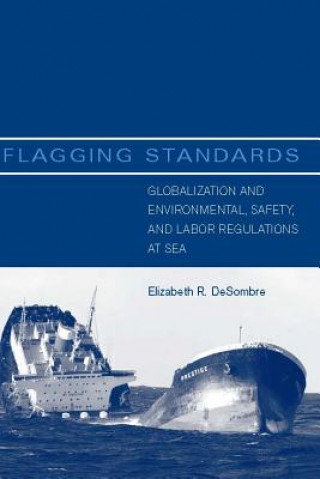
Kézbesítés
Vásárlási tanácsadó





Nem vált be? Semmi gond! Nálunk 30 napon belül visszaküldheti
 Ajándékutalvány
bármilyen értékben
Ajándékutalvány
bármilyen értékben
Ajándékutalvánnyal nem nyúlhat mellé. A megajándékozott az ajándékutalványért bármit választhat kínálatunkból.
Flagging Standards
 Angol
Angol
 34 b
34 b
30 nap a termék visszaküldésére
Ezt is ajánljuk


Shipping is among the most globalized of industries. Shipowners can choose where to register their vessels, based on cost, convenience, and the international and domestic regulations that would govern their operation. This system of open registration, also known as flags of convenience (FOC), can encourage a competition in regulatory laxity among states that want to attract shipping revenues--a race to the regulatory bottom. In Flagging Standards, Elizabeth DeSombre examines the effect of globalization on environmental, safety, and labor standards in the shipping industry. She finds that the economic advantages of lowered standards can be offset by the collective action of international organizations, states, and nongovernmental actors to exclude low-standard ships from the advantages of globalization. Open registries are pressured to raise their standards while traditional maritime states lower theirs somewhat when they create international or second registries. The result is a competition not for the regulatory bottom but for the middle ground.DeSombre examines the decisions made by states and shipowners that lead to this race to the middle and explores the effectiveness of strategies used by both state and nonstate actors aimed at raising regulatory standards, including port control, labor actions against FOC ships that fail to meet international labor standards, and trade restrictions against shipped goods that were not obtained within the requirements of international agreements. Globalization, DeSombre finds, may lead to a downward trend in regulatory standards but has also created many opportunities to raise these standards and does not necessarily signal a reduction of state control.
Információ a könyvről
 Angol
Angol




 Hogyan vásároljunk
Hogyan vásároljunk

























